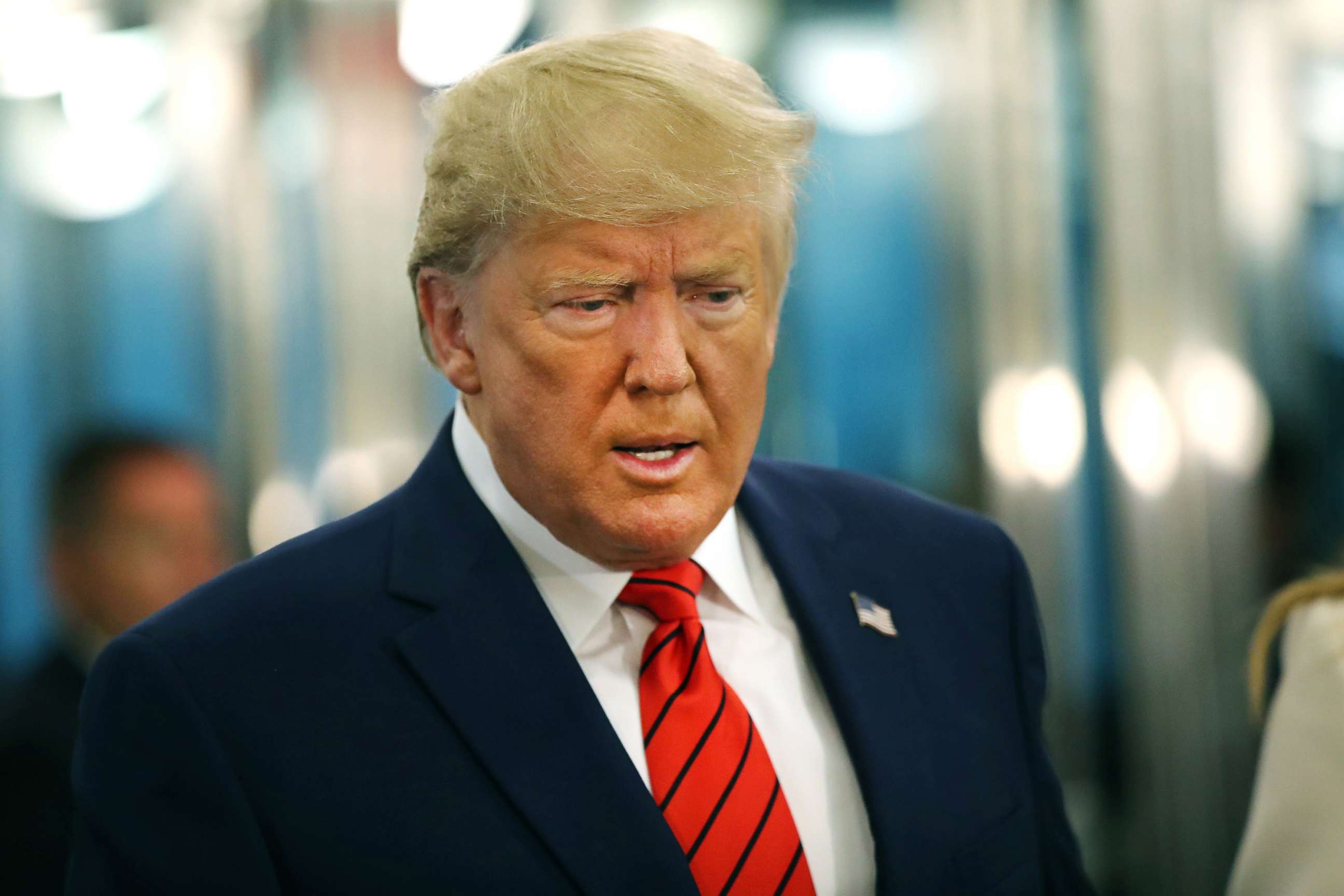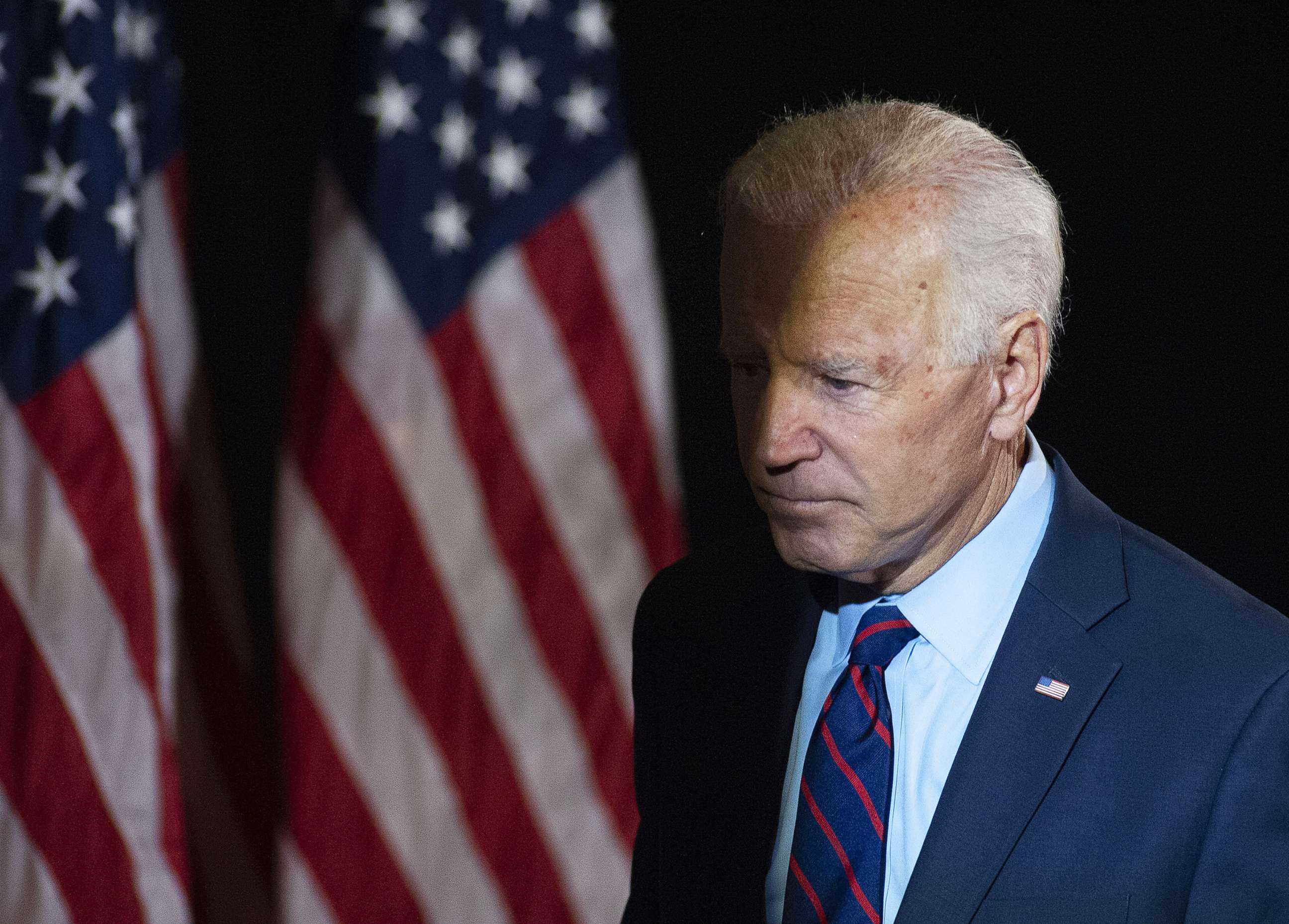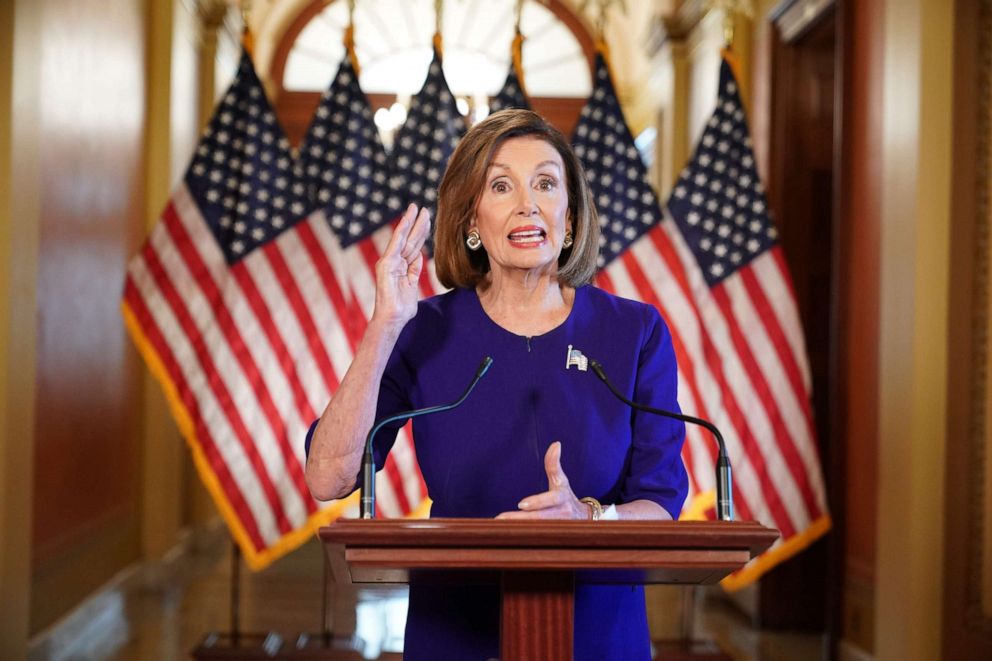Impeachment debate freezes 2020 campaign in place: ANALYSIS
The presidential campaign as the candidates have known it is effectively over.
The presidential campaign as the candidates have known it is effectively over.
In its place comes a more complicated and harder-to-control sequence of potential events that effectively freezes the campaign in place, while injecting fresh uncertainties into a volatile political climate. If House Democrats move to impeach President Donald Trump -- something they're now closer than ever to doing, after a head-spinning series of developments -- everything the candidates do in the next several months will play against that backdrop.

It would all play out against an inconvenient political timeline, with hearings in the House and a potential trial in the Senate almost certainly extending well into the winter.
That's the precise time that campaigning is most intense, with primary voting beginning in February. For the six senators and two sitting House members running for president, that could make for far more time spent at the day job in Washington than anticipated. Long-developed plans for policy rollouts and potential breakout moments could wind up subsumed by the news.
Then there's the situation facing former Vice President Joe Biden, whom Trump stands accused of trying to target in his conversations with the Ukrainian president in the first place. The Democrats' polling frontrunner may like the sentiment of Trump's focus on his candidacy, though not necessarily this type of scrutiny of his family finances.
Biden on Tuesday called on Congress to use its "full constitutional authority" to demand information from the Trump administration -- knowing full well that such cooperation is unlikely.

"If the president does not comply -- if he continues to obstruct Congress and flout the law -- Donald Trump will leave Congress no choice but to initiate impeachment," Biden said. "That would be a tragedy. But a tragedy of the president's own making."
Most of the major candidates used the news out of the Capitol to reiterate long-held positions regarding impeachment. Some have been more vociferous on the topic than others, though no Democrat running is vociferously opposed to the concept. Impeachment simply hasn't been a top-of-mind issue among Democratic primary voters or the candidates in recent months. At the last Democratic debate -- held less than two weeks ago, and broadcast on ABC -- the topic didn't come up.
Firm statements from candidates gloss over the wider uncertainty inside Democratic campaigns about how this will all play out.
At least publicly, Republicans remain convinced that it's a winning political issue for them, particularly after former special counsel Robert Mueller's report on Russian election interference landed with a public dud. Republican control of the Senate continues to make it exceedingly unlikely that impeachment will result in removal from office, freeing Trump to talk again of "witch hunts."

The story line involving Ukraine may be different, since it's both easier to comprehend and as much about future potential presidential behavior as it is about the past. But the task of public education, that House Speaker Nancy Pelosi has long referred to, hasn't been fulfilled yet -- not even close.
The Democrats who want to be president will now find themselves fielding fresh questions about a process they are only able to influence at the margins or from the sidelines. Issues that seemed huge days ago -- Sen. Elizabeth Warren's tax plan, Sen. Cory Booker's fundraising deadline, nuances of how to achieve universal health care -- will recede for at least a little while.
The move toward impeachment does bring a dose of clarity to official Washington, and perhaps even some relief among candidates whose views have not always matched Pelosi's. Democrats have long since been united in their commitment to getting Trump out of office. Now it seems that they will pursue another path before getting to next November, with the 2020 candidates along for an unpredictable ride.




